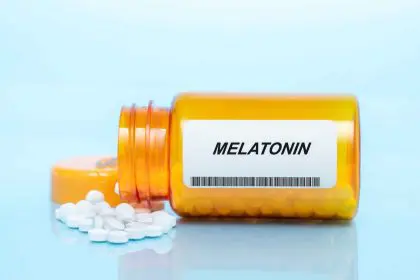Your kidneys might be crying for help right now, but you wouldn’t know it. These vital organs often suffer in silence until serious damage occurs, and medical experts have identified seven everyday habits that could be putting your kidneys at risk without you realizing it.
The salt situation in your kitchen cabinet
- That innocent-looking salt shaker on your dinner table might be your kidneys’ worst enemy. Dr. Maria Chen, director of nephrology at Pacific Medical Center, sees patients daily who unknowingly consume dangerous amounts of sodium. The real culprit? It’s not just your salt shaker – processed foods pack a hidden sodium punch that makes your kidneys work overtime. A single frozen dinner can contain more than 50% of your daily sodium limit, forcing your kidneys to filter extra fluid and potentially leading to permanent damage.
Your water bottle gathering dust
- That reusable water bottle sitting untouched on your desk represents a growing trend among busy Americans: chronic dehydration. Your kidneys depend on adequate water intake to flush out toxins effectively. When you skimp on water, these toxins can build up, potentially leading to painful kidney stones. Medical data reveals that Americans who drink less than six glasses of water daily face a 50% higher risk of declining kidney function over time.
The smoke break that costs more than money
- The connection between cigarettes and your kidneys runs deeper than most realize. Each cigarette contains over 4,000 chemicals that pass through your kidneys, damaging their delicate filtering system. Research from the National Kidney Foundation shows smokers face double the risk of kidney disease compared to non-smokers, with the danger increasing by 11% for each daily cigarette.
That extra glass of wine you “deserve”
- Your evening wine ritual might feel like a well-earned reward, but your kidneys see it differently. Alcohol forces these organs to work harder, filtering extra toxins while simultaneously dealing with dehydration. Regular drinkers who consume more than two drinks daily show a 30% increase in protein in their urine – an early warning sign of kidney damage.
The couch potato syndrome
- Your Netflix marathon might be costing your kidneys more than you think. Physical inactivity leads to poor blood circulation, making it harder for kidneys to function properly. Studies show that people who exercise regularly have a 25% lower risk of kidney disease compared to those leading sedentary lives. Even walking 30 minutes daily can improve kidney function by enhancing blood flow and reducing inflammation.
The sugar overload in your morning routine
- That sweetened coffee drink you grab every morning isn’t just affecting your waistline. High sugar intake overwhelms your kidneys, especially when combined with other unhealthy habits. Medical research indicates that people who consume sugary drinks daily have a 40% higher risk of developing kidney disease. The sugar spike forces your kidneys to work harder, potentially leading to long-term damage.
Skipping your annual check-up
- Missing regular medical check-ups means potentially missing early warning signs of kidney problems. Blood and urine tests can detect kidney issues years before physical symptoms appear. Yet, 40% of Americans skip their annual physical, leaving potential kidney problems undetected until significant damage occurs.
Your kidneys’ silent cry for help
Your kidneys process about 200 quarts of blood daily, removing waste and keeping your body balanced. Unlike other organs, they don’t typically cause pain or discomfort until problems become severe. This silent nature makes it crucial to recognize how everyday habits affect kidney health.
The morning-to-night kidney protection plan
Starting your day with a large glass of water instead of caffeine can set the tone for better kidney health. Small changes, like reading nutrition labels for sodium content and taking walking breaks during work hours, add up to significant kidney protection over time.
A wake-up call for change
Recent medical surveys show that 90% of people with kidney disease don’t know they have it until the condition becomes serious. This statistic becomes more alarming considering that many risk factors stem from controllable daily habits.
Understanding your kidney’s warning signals
While kidneys typically work silently, they do send subtle signals when stressed. Changes in urination patterns, swelling around eyes or ankles, and unexplained fatigue might indicate your kidneys need attention. However, waiting for these signs means damage may already exist.
The role of stress in kidney health
Modern life’s constant pressure affects kidney health more than previously understood. Chronic stress triggers inflammation and raises blood pressure – two factors that directly impact kidney function. Finding healthy ways to manage stress, such as meditation or regular exercise, becomes part of protecting your kidneys.
Breaking the cycle of kidney damage
Changing ingrained habits takes time and dedication, but your kidneys are worth the effort. Start by tracking your water intake for a week, gradually reducing processed food consumption, and building more movement into your daily routine. These small steps create a foundation for long-term kidney health.
The future of your kidney health
Your kidneys’ future health largely depends on the choices you make today. By understanding how everyday habits affect these vital organs, you can take control of your kidney health before problems develop. Remember, kidneys don’t just filter blood – they help regulate blood pressure, produce red blood cells, and maintain bone health.
Medical experts emphasize that kidney disease prevention starts with awareness of how daily choices affect kidney function. Making informed decisions about diet, exercise, and lifestyle habits can help ensure your kidneys continue their vital work efficiently for years to come.












